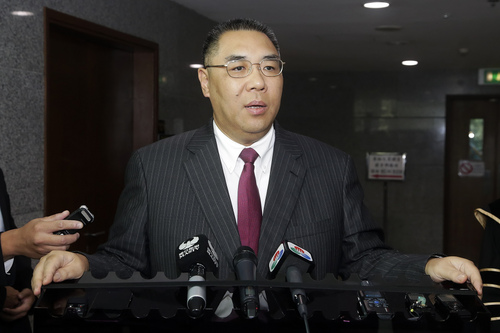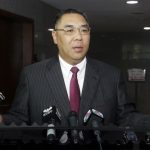 Chief Executive, Mr Chui Sai On, meets the press.
Chief Executive, Mr Chui Sai On, meets the press.
The Government would provide lands to build more public facilities for the betterment of the people’s livelihood, said the Chief Executive, Mr Chui Sai On. He said the Government had set priority to plan more healthcare, education, cultural and sports facilities in the upcoming construction projects, as to create more space in the community to accommodate social development and population growth. Speaking to the press at the graduation ceremony of the Institute for Tourism Study on 17 September, Mr Chui said there were applications of building residential housings in Nam Van Lake C and D areas during governance of the SAR Government and the former Portuguese administration. He said he was aware of opportunities to develop public-serving facilities in the area. The Chief Executive re-iterated the Government would closely follow the principle of not including any gaming project in the five plots of land in new urban reclamation area. The five plots, approved by the Central Government, are aimed at enhancing the people’s quality of life. The Government will strictly comply with the Land Law, the Urban Planning Law and the Cultural Heritage Protection Law, which became effective since March last year, especially the details and procedures. When asked, Mr Chui said the Government would commission an academic institute to study in-depth the concession issue of the Macau (Yat Yuen) Canidrome, and would announce the result in the near future. Mr Chui said the Government would heed the people’s opinion on the issue, adding that dog racing has been existed in Macao for years and was considered as a component of gaming variety. Concession of the Macau (Yat Yuen) Canidrome will expire at the end of the year.


